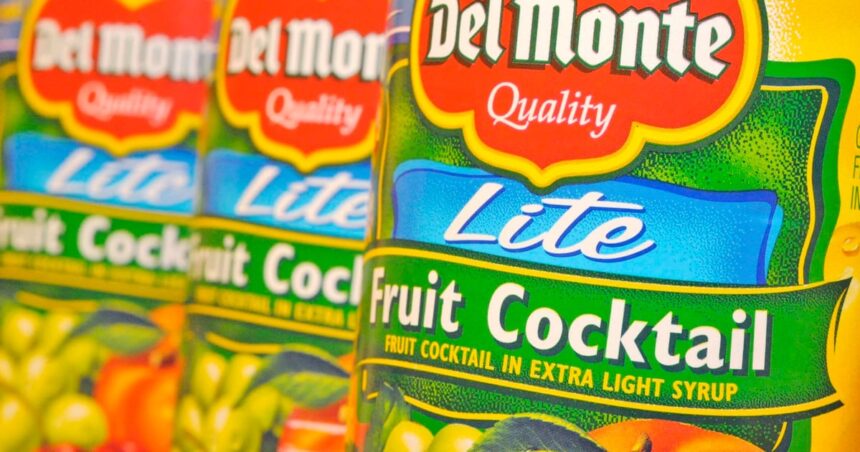The iconic red and yellow Del Monte label, a fixture in grocery aisles for generations, may soon become a relic of retail history. In a stunning development that sent shockwaves through the food industry yesterday, Del Monte Foods filed for Chapter 11 bankruptcy protection after 138 years of operation, citing “insurmountable financial challenges” and a rapidly changing consumer landscape.
Standing in a California supermarket where Del Monte products have been stocked since the 1950s, the gravity of this moment isn’t lost on longtime manager Frank Dominguez. “We’ve had customers coming in confused, asking if we’ll still carry their canned peaches or pineapple chunks,” he says, adjusting displays that may soon become collectors’ items. “These are products people’s grandparents used. It’s like watching a piece of American history disappear.”
The bankruptcy filing reveals the stark reality behind the household name: Del Monte has been grappling with $1.2 billion in debt while facing intensifying pressure from private label brands and changing consumer preferences for fresh over canned goods. Industry analysts point to a 23% decline in canned fruit consumption over the past decade as younger shoppers increasingly bypass these traditional staples.
“Del Monte failed to innovate quickly enough in a market demanding convenience, sustainability, and perceived freshness,” explains Marissa Chen, retail analyst at Broadview Financial. “While they were still banking on brand loyalty from older generations, competitors were capturing the crucial millennial and Gen Z demographic with fresh-cut, ready-to-eat options and eco-friendly packaging.”
The company’s struggles reflect broader trends reshaping the North American food landscape. Traditional packaged goods giants are finding themselves outmaneuvered by nimble startups and facing pressure from retailers expanding their own private label offerings. Walmart and Target have both expanded their store brand canned goods by over 30% since 2022, often pricing them significantly below national brands like Del Monte.
Del Monte CEO Carlos Sanchez addressed employees in an emotional company-wide meeting, emphasizing that operations would continue during restructuring. “This isn’t the end of Del Monte, but a necessary step to secure our future,” Sanchez stated in prepared remarks. “We intend to emerge stronger, more efficient, and better positioned to serve the modern consumer.”
For now, Del Monte products will remain on shelves as the company negotiates with creditors and potential investors. Court documents indicate the company plans to sell several production facilities and is exploring options to offload some of its less profitable brands while focusing resources on its plant-based and organic product lines, which have shown modest growth.
The filing has broader implications for the approximately 4,300 Del Monte employees across North America and the numerous farming operations that supply the company. In California’s Central Valley, where Del Monte sources much of its fruit, growers are already considering contingency plans.
“We’ve been selling peaches to Del Monte for three generations,” says Maria Gonzalez, whose family farm supplies the company. “They account for about 40% of our business. We’re already talking to other buyers, but this creates tremendous uncertainty for the upcoming harvest season.”
As this story develops, the question remains whether Del Monte will join the ranks of once-mighty brands that disappeared following bankruptcy, or if it will successfully reinvent itself for the 21st century consumer. Either way, the Del Monte bankruptcy represents more than just a business failure—it signals the fading of a brand that helped define the American pantry for over a century.
For more coverage on this developing story, visit our CO24 Business section, or check CO24 Breaking News for the latest updates on Del Monte’s restructuring efforts.


















